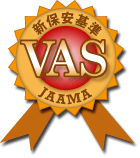Certifications
Home > Certifications

KIRAMEK manufactures a broad line of security products with a diverse set of certifications depending on the country to which we export. Some VISION and SCIBORG systems have FCC certification while others have CE and/or C-Tick certification. For the Japanese market, there is yet another set of standards to which our car security products must conform, and detailed information pertaining to Japan is given below. Certified products are sold as a complete kit and show the certification mark on their individual product web pages on this site.
Although the certification information below relates only to Japan, this information serves to inform our valued buyers about the rigorous testing VISION and SCIBORG car security products must go through before they are approved for sale. Japanese car security regulations are similar to E-mark certification in Europe, and E-Mark certified products are accepted in Japan without further testing.
Vehicle Security Regulations & Compliance (Japan)
In order to regulate the increasing number of vehicle anti-theft devices in Japan, the Japanese Ministry of Land, Infrastructure and Transport on July 7, 2003 revised its safety standard for road vehicles in Japan (hereafter, "Safety Standard"). Enforcement of this Safety Standard went into effect on July 1, 2006.
This revised Ministerial Ordinance provides concrete technical standards pertaining to anti-theft devices -- Ministry of Land, Infrastructure and Transport Regulation Notice#619: 54th Provision (anti-theft alarms), 110th Provision (anti-theft alarms), and 78th Addendum (anti-theft device technical standard).
Conformity Testing
Cyclic Testing (-40°C to +85°C for anti-theft devices mounted inside vehicle, and 125°C for anti-theft devices mounted in the engine compartment) must reveal normal operation of the anti-theft device in the installed environment. Devices (such as sirens) installed in the engine compartment are subject to strict -40°C to +125°C heat-resistance temperature tests in addition to IP54 waterproofing, dustproofing and vibration tests.
Endurance Testing: the main siren of the anti-theft device must not fail, over-heat, short-out, or otherwise respond abnormally under testing
Basic Safety Testing: verifies that no fire is caused by potential wiring mistakes made by installers
Safety Testing of Anti-Theft Device Attachments: confirms the safety of the anti-theft device when connected to ultrasonic sensors, shock sensors, and other such external sensing devices.
Sound Pressure Testing: verifies that the sound intensity does not exceed the limit of 100dB @ 2 meters.
Verification of conformity to the Japan Radio Law (RF frequency/intensity/wireless noise, ARIB STD).
Vehicles Covered
All passenger cars in Japan that are newly registered on or after July 1, 2006, weighing less than 2-tons and operating on a 12v power source, are subject to the regulation. "Light Motor Vehicles" or "K-cars" are subject to the regulation from July 1, 2008. Conformity to the Safety Standard is only required when an anti-theft device is installed to the aforementioned vehicles (in Japan).
Non-Compliance
If a non-conforming anti-theft device is installed into a car in Japan, the vehicle in most cases will not pass Shaken inspection.
Proof of Compliance
All anti-theft systems that pass conformity testing are issued a compliance certificate. A copy of this certificate is bundled with applicable anti-theft systems sold within Japan. (Exported products do not include the certificate.)
In addition, the Japan Auto Accessories Manufacturers' Association (JAAMA, an independent standards organization) issues its own certificates and product labels (also known as "VAS" certification) based on a similar yet more complex set of criterion as set forth in the Safety Standards.
VAS Compliant Security Products
VISION 1480S / 1480B, SCIBORG 540HS / 540HB
VISION 1460S / 1460B, SCIBORG 640HS / 640HB
Compliance Certificate



